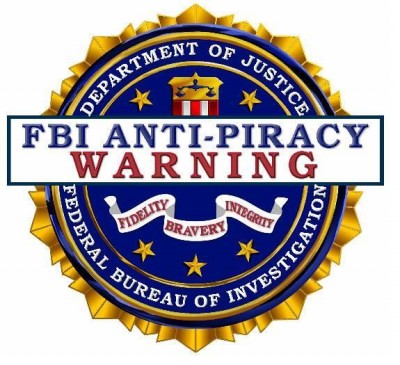Federal Copyright Laws: Americans Break Them Every Day Without Even Knowing It
You May Think You Have Nothing to Hide … But You’re Breaking Federal Copyright Laws Several Times a Day Without Even Knowing It

Wired notes:
James Duane, a professor at Regent Law School and former defense attorney, notes in his excellent lecture on why it is never a good idea to talk to the police:
Estimates of the current size of the body of federal criminal law vary. It has been reported that the Congressional Research Service cannot even count the current number of federal crimes. These laws are scattered in over 50 titles of the United States Code, encompassing roughly 27,000 pages. Worse yet, the statutory code sections often incorporate, by reference, the provisions and sanctions of administrative regulations promulgated by various regulatory agencies under congressional authorization. Estimates of how many such regulations exist are even less well settled, but the ABA thinks there are ”nearly 10,000.”
If the federal government can’t even count how many laws there are, what chance does an individual have of being certain that they are not acting in violation of one of them?
The complexity of modern federal criminal law, codified in several thousand sections of the United States Code and the virtually infinite variety of factual circumstances that might trigger an investigation into a possible violation of the law, make it difficult for anyone to know, in advance, just when a particular set of statements might later appear (to a prosecutor) to be relevant to some such investigation.
For instance, did you know that it is a federal crime to be in possession of a lobster under a certain size? It doesn’t matter if you bought it at a grocery store, if someone else gave it to you, if it’s dead or alive, if you found it after it died of natural causes, or even if you killed it while acting in self defense. You can go to jail because of a lobster.If the federal government had access to every email you’ve ever written and every phone call you’ve ever made, it’s almost certain that they could find something you’ve done which violates a provision in the 27,000 pages of federal statues or 10,000 administrative regulations. You probably do have something to hide, you just don’t know it yet.
Attorney Harvey Silverglate says that the average American commits 3 felonies every day … without even knowing it. And that’s just federal laws.
Crazy State Laws
There are a lot of crazy state and local laws:
Show me the man and I will find the crime.
The problem is, if they think they’re not doing anything that’s wrong, they don’t get to define that. The central government does.
Binney explains that the government is storing everything, and creating a searchable database … to be used whenever it wants, for any purpose it wants (even just going after someone it doesn’t like). And he notes that the government will go after anyone who is on its enemies list:
If you ever get on their enemies list, like Petraeus did, then you can be drawn into that surveillance.
Because even if you’re not doing anything wrong you’re being watched and recorded. And the storage capability of these systems increases every year consistently by orders of magnitude … to where it’s getting to the point where you don’t have to have done anything wrong. You simply have to eventually fall under suspicion from somebody – even by a wrong call. And then they can use this system to go back in time and scrutinize every decision you’ve ever made, every friend you’ve ever discussed something with. And attack you on that basis to sort to derive suspicion from an innocent life and paint anyone in the context of a wrongdoer.[If people don’t oppose the surveillance state now] it will be turnkey tyranny.

